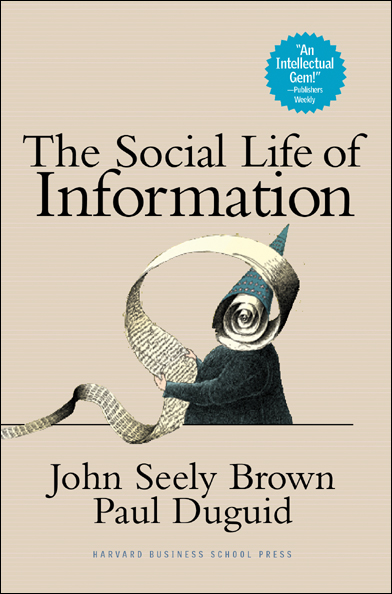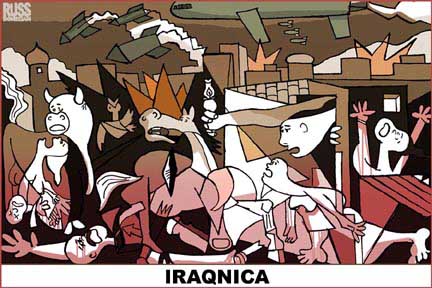I originally wrote this entry on August 25, 2004, and published it on blogs.sun.com.
I am one of those very rare Americans who rarely watch T.V.
In fact, I watch TV so rarely that some people have argued that I'm not even an American. (Some other people have reached the same conclusion from wildly differing points of origin but that's a different matter.)
Why am I sharing such odd facts with you?
Well, there are those rare times that I do watch TV, for example when I'm traveling for business, say for a visit to one of Sun's telecommunications partners in Europe or for an Open Mobile Alliance working group meeting, as was the case this past week.
That's how I ended up glimpsing through parts of a PBS program on the epidemic and growing spread of Alzheimer in the U.S. while resting in my hotel room in Kona. (My best other alternative, perhaps from an anthropologist's point of view, was KWHE TV 14, a religiously inspired TV station running long ads for vacations to Israel, interdispersed with news casts about evil deeds of various Muslim governments. Why does that remind me of the case of the Holy Land Foundation?)
Obviously, most neurobiologists, neurosurgeons and other scientists and clinicians pay a great deal of attention to what happens to the brain, physically, when one is afflicted with Alzheimer. In other words, they look at the brain and they see synaptic and neural atrophy with an onset of fibrous bodies within the neurons. I'm summarizing things here and certainly don't claim to know very much in this field of scientific enquiry although I did take as much biology, organic chemistry, biochemistry, embryology and physiology as any pre-med student, if not more, when I was an undergrad and then a grad student. In those years, I even took a graduate course on physiology of language, with some real human brains used as instructional material.
In any case, what's the problem with the conventional scientists' approach to the study of Alzheimer's Disease?
In my view, the conventional "scientific" enquiry is missing a whole set of possible reasons and sources for the epidemic affliction of short-term memory loss followed by Alzheimer's devastating degradations.
The "scientists" seem to be looking primarily at the symptoms of something that may be much deeper. In their efforts, they are trying to correct those symptoms head-on, delay their onset or biochemically alter their operations.
But handling symptoms directly rather than seeking the root causes of the physiological changes and afflictions could be putting the cart before the horse. According to a proper method, root causes should not be claimed to be known unless we have a proper and a well-understood explanation connecting cause and effect.
Well, what are the causes of Alzhemier?
I'm not a doctor, and what I write here are my own views and are based on a quick philosophical analysis of the problem with some informed understanding of some of the biology involved. So, instead of directly answering the question, I'd like to share some hypothesis regarding short-term memory, how it is stressed and how it may be damaged. [Note: From a conceptual point of view, the damage to our short-term memory organs can be operating very much like how our inner ear's cochlea can be damaged and rendered useless for particular sound frequencies. However, in the brain the various "frequencies" or "duration" organs of memory are much more integrated and networked than the organs of sound frequency audition in the cochlea itself. In other words, any damage in the brain will probably spread much more easily than any damage in the cochlea.]
Martin Heidegger has effectively said that "being" is "being-in-the-world," and that we're the only being (among the rocks, animals and other inanimate and animate objects that surround us) whose being is a concern for itself. In other words, the lion in the forest may not be so concerned about why it, i.e. the lion, is, but we are. That's what distinguishes us as a being-in-the-world.
Now, how do we come to be a being-in-the-world? How do we absorb the world? (I'm coining "absorb the world" as a phrase to use here.)
Let us look at two cases: In the first one, we're walking in the Henry Cowell State Park in the Santa Cruz Mountains, here in California. In the second case, we're driving between between 60 and 70 miles per hour (or say 70 - 90 miles per hour when in Europe) on a stretch of freeway where we see a variety of cars and other objects passing us at a dizzying speed.
How would you absorb the world (the physical environment) in each of these cases?
Of course, absorbing your physical environment is simply an instance of "absorbing the world" not the whole experience involved when you "absorb the world." (For example, when you absorb the "world of physics" or the "world of high-performance computing," there is something more than simply absorbing some physical environment.)
In any case, the point I'm trying to make is that short-term memory is crucial for absorbing the world through the gradient of variations that pass the field of our perception.
If the gradients in the field of our perception are sharp, for example when objects pass our field of vision very quickly with no chance for us to integrate them into a larger experience, we lose the connection to the world, we cannot absorb and interpret it within the context of our experience. We cannot build on a sequence of sensations. Our short-term integrative cognitive apparatus is strained. (Why do people listen to soothing music in their sound-proof luxury cars while driving at dizzying speeds on the freeways of the Silicon Valley? Could a will towards continuity in the field of auditory perception in order to counter-balance the sharp gradients in the field of visual perception provide a possible answer?)
A fast-paced life--a life of constant and unpredictable change in the perceptual world--drastically increases perceptual gradients and reduces our ability to properly absorb and integrate what goes on around us. This is a true malady and must have some physiological consequences. However, I don't see any of these questions being raised or asked by the Alzheimer researchers, whether those conducting behavioral or biochemically rooted research.
With the absence of such alternative research approaches, we may be missing many interesting questions which could be tackled in the way I've just described. Such an enquiry may conclude that we may have to do something to the way we live before we can root out early onset of memory loss and Alzheimer's Disease.
Thank you for listening !!!






